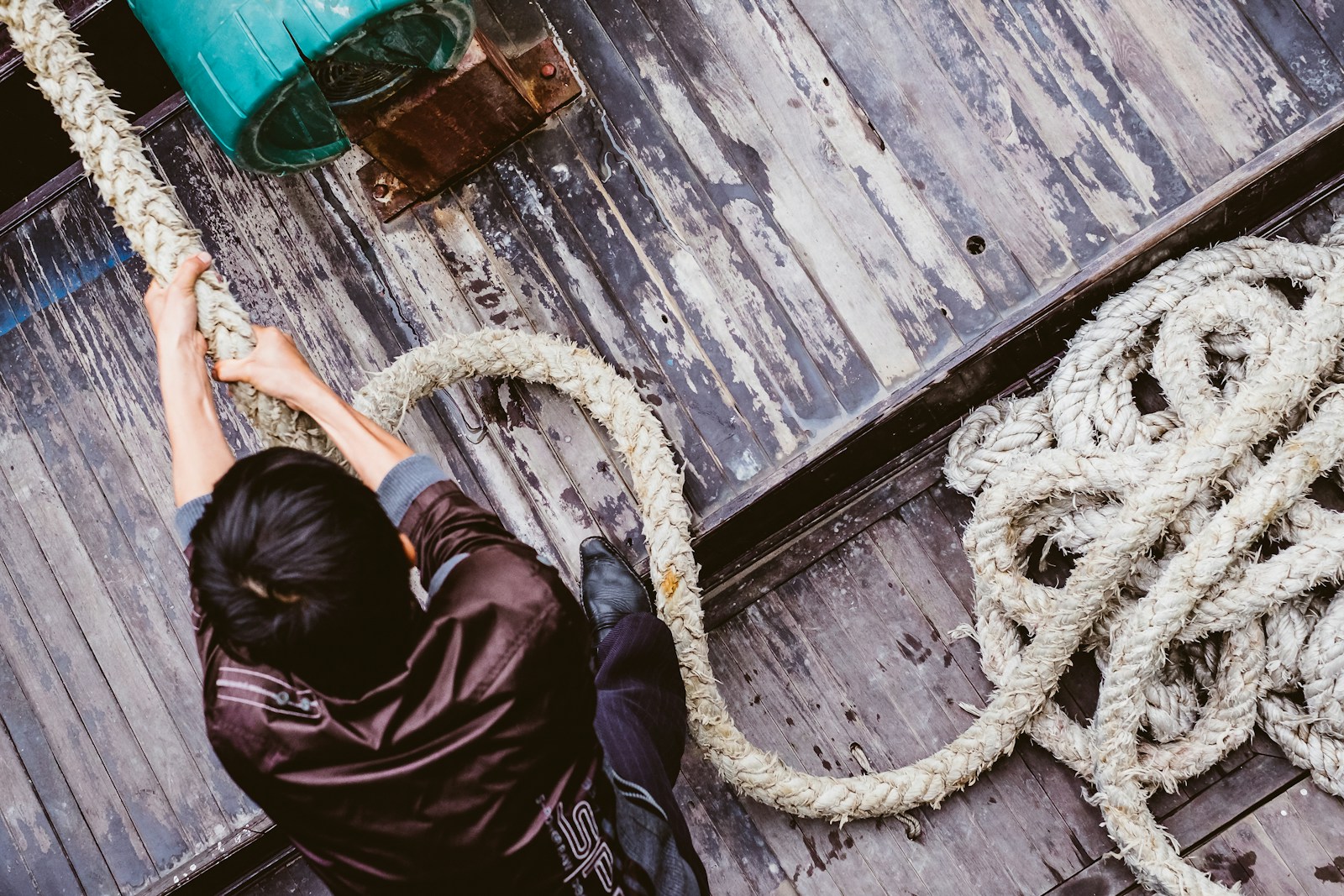
绳子
shéngzi

rope
In Chinese, '绳子' means 'rope'. It is generally used in the same way as in English, to refer to a long, thick line or cord, frequently used for tying, binding, or fastening. It may also be used metaphorically in some contexts, just as 'rope' in English can be a metaphor for connection or binding.
Example sentences using: 绳子
你看到那条绳子了吗?
Nǐ kàndào nà tiáo shéngzi le ma?

Have you seen that rope?
This phrase is a question asking if someone has seen a specific rope.
把绳子给我。
Bǎ shéngzi gěi wǒ.

Give me the rope.
This phrase is a request for someone to hand over a rope.
绳子上挂着钥匙。
Shéngzi shàng guà zhe yàoshi.

The keys are hanging on the rope.
This phrase states that keys are hanging from a rope.
我把绳子绑在树上。
Wǒ bǎ shéngzi bǎng zài shù shàng.

I tied the rope to the tree.
This phrase describes an action where the speaker secures a rope to a tree.
那只狗拽着绳子走。
Nà zhǐ gǒu zhuāi zhe shéngzi zǒu.

The dog is dragging the rope.
This phrase describes a dog's action of dragging a rope along with it.
他解开了那个绳子。
Tā jiěkāile nàgè shéngzi.

He untied the rope.
This phrase describes an action where someone is untying a rope.
绳子断了。
Shéngzi duànle.

The rope is broken.
This phrase explains a state of rope being broken or snapped.
在绳子尽头,他找到了希望。
Zài shéngzi jìntóu, tā zhǎodàole xīwàng.

At the end of the rope, he found hope.
This is a metaphorical phrase indicating that after difficulties, someone finds hope.
他在做一个绳子梯。
Tā zài zuò yīgè shéngzi tī.

He's making a rope ladder.
This phrase indicates that someone is in the process of creating a ladder made out of rope.
绳子太短,无法抵达目标。
Shéngzi tài duǎn, wúfǎ dídá mùbiāo.

The rope is too short to reach the target.
This phrase points out a problem where a rope is not long enough to reach a certain goal or target.